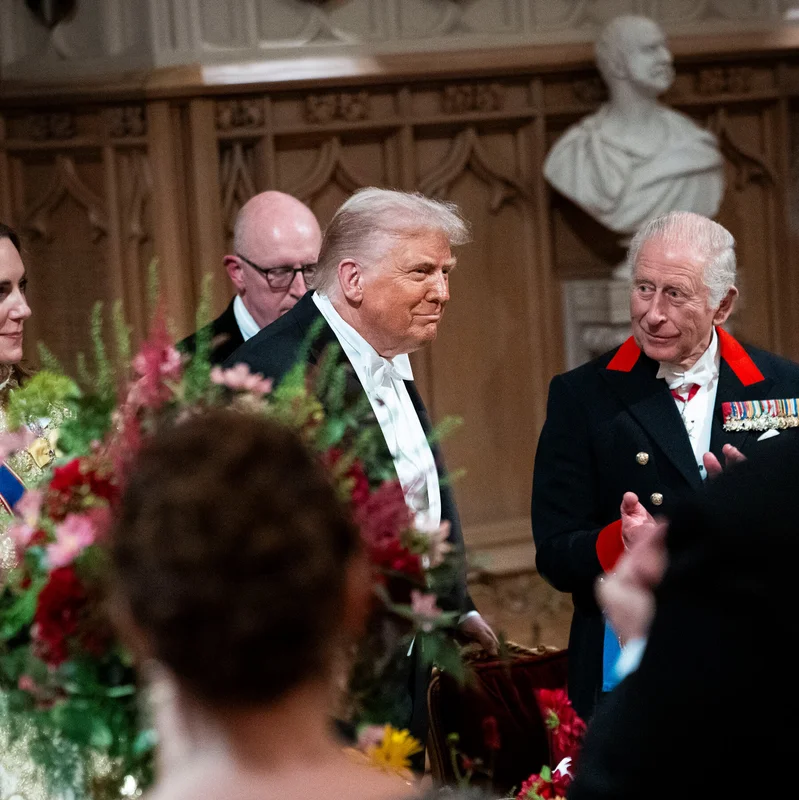Just days after being hosted by King Charles III at Windsor Castle during a high-profile state visit, former U.S. President Donald J. Trump delivered a sharp rebuke to the United Kingdom—and Europe at large—during a speech at the United Nations General Assembly on September 24, 2025.
Speaking to European leaders, Trump declared, “Your countries are going to hell,” and called for an end to what he described as the “failed experiment of open borders.” While he didn’t name Britain explicitly, observers widely interpreted the remarks as a direct critique of the UK’s immigration policies under Prime Minister Keir Starmer .
A Contradictory Timeline: From Windsor to the U.N.
The juxtaposition between Trump’s warm reception in the UK and his subsequent U.N. comments has drawn widespread attention. Below is a timeline of key events:
| Date | Event | Location |
|---|---|---|
| July 2025 | Trump visits Scottish golf resorts | Turnberry, Scotland |
| September 17–20, 2025 | State visit with royal banquet, military honors | Windsor Castle, England |
| September 24, 2025 | Delivers U.N. speech criticizing Europe’s immigration policies | New York City, USA |
What Did Trump Say—and Why It Matters
During his U.N. address, Trump doubled down on his long-standing stance on immigration, urging European nations to adopt stricter border controls. He reportedly told Prime Minister Starmer in private during the state visit that the UK must “get tough on immigration” .
His public comments, however, risk straining transatlantic relations at a time when Western democracies are seeking unity on global challenges—from climate change to defense cooperation.
Key Themes in Trump’s U.N. Remarks
- Border Security: Called open-border policies a “failed experiment”
- Cultural Identity: Warned of erosion of national identity due to unchecked migration
- Political Messaging: Framed remarks as a warning ahead of the 2026 U.S. elections
Diplomacy vs. Domestic Politics: Was Trump’s speech aimed more at European leaders—or American voters?
UK Reaction: Silence and Subtext
The UK government has not issued a formal public response, but sources within Downing Street describe the remarks as “unhelpful” and “disrespectful given the hospitality extended.”
Prime Minister Keir Starmer, who leads a center-left Labour government, has emphasized a balanced approach to immigration—prioritizing skilled workers while addressing asylum system backlogs. His administration has avoided escalating the exchange, likely to preserve broader U.S.-UK strategic ties.
Broader Implications for U.S.-UK Relations
The so-called “Special Relationship” between the U.S. and UK has historically weathered political turbulence. However, Trump’s dual role—as both a private citizen and likely 2026 presidential candidate—adds complexity.
Analysts note that such public critiques may influence how European allies view potential U.S. foreign policy shifts should Trump return to office.
For deeper insights into transatlantic diplomacy, see our analysis on [INTERNAL_LINK:us-uk-special-relationship].
Conclusion: A Pattern of Provocation
Trump’s latest comments fit a familiar pattern: leveraging international platforms to amplify domestic political narratives. While his U.N. speech resonated with his base, it left allies questioning the reliability of future U.S. leadership.
As one London-based foreign policy expert put it: “You don’t bite the hand that just served you caviar at Windsor.”




